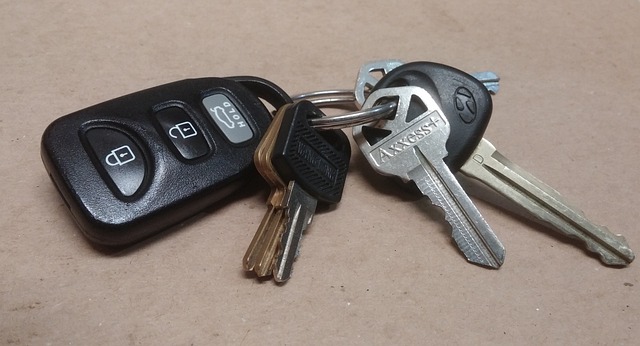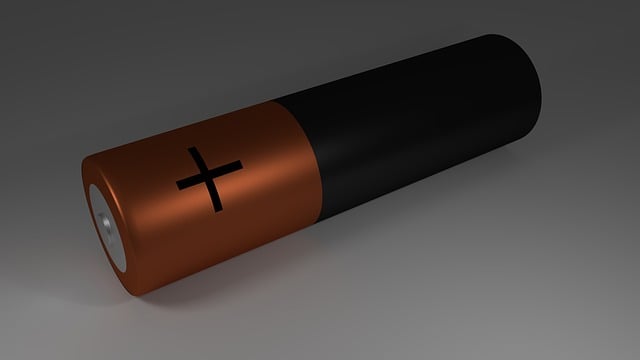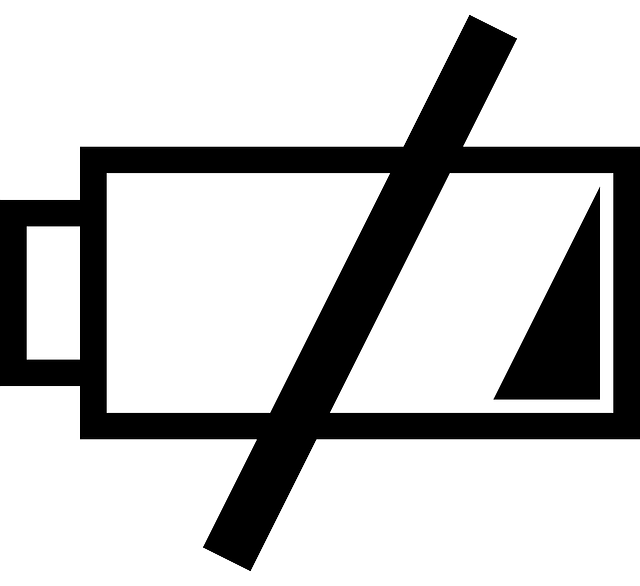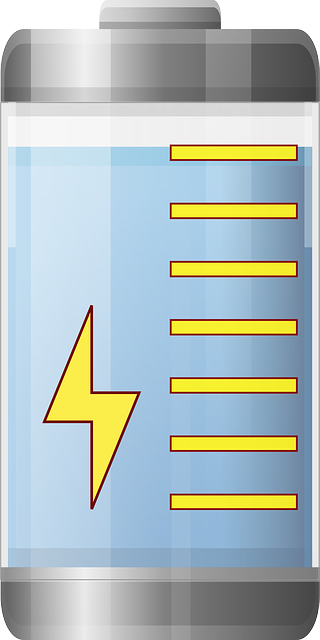Button batteries, common in everyday devices like watches, remote controls, and hearing aids, are hazardous to the environment and human health if disposed of improperly due to their lithium content. These batteries can cause ecological damage when they leak toxic substances into soil and water, and they pose a serious risk if ingested by people or animals. To address this, it's crucial to transition to alternative energy sources in devices, such as solar power or kinetic energy harvesters, to reduce reliance on disposable batteries. Additionally, advocacy groups and policymakers are working together to implement safety features in battery design, promote recycling programs, and encourage manufacturers to develop safer alternatives. Public education is also critical to ensure proper disposal methods are understood and practiced, with accessible collection points available for the responsible management of these batteries. A comprehensive approach combining advocacy, public awareness, and effective policy is essential to protect both the environment and public health from the risks associated with button batteries.
10 Tips for Eco-Friendly Button Battery Disposal
Button batteries power a myriad of everyday devices, from remote controls to watches. Yet, their disposal poses a significant environmental risk due to their high alkaline content, which can be harmful to aquatic life and ecosystems. This article delves into the best practices for eco-conscious battery management, from understanding their impact to identifying responsible disposal options. Learn how proper handling, storage, and participation in collection programs can safeguard the environment, alongside insights into local waste management systems, recycling center roles, and alternative energy sources for button battery-operated devices. Additionally, explore advocacy and policy initiatives that are pivotal in promoting eco-friendly disposal practices nationwide, ensuring a sustainable future for our planet.
- Understanding the Environmental Impact of Button Batteries
- The Proper Handling and Storage of Used Button Batteries
- Identifying Collection Programs for Eco-Friendly Disposal
- How to Safely Dispose of Button Batteries in Your Local Waste Management System
- The Role of Recycling Centers in Processing Button Batteries
- Tips for Reusing and Conserving Button Batteries to Minimize Waste
- Alternative Energy Sources for Devices That Use Button Batteries
- Advocacy and Policy: Promoting Eco-Friendly Disposal of Button Batteries Nationwide
Understanding the Environmental Impact of Button Batteries

The disposal of button batteries presents a significant environmental concern due to their potential to cause harm both to ecosystems and wildlife. These small yet potent cells, commonly found in everyday devices such as watches, hearing aids, and remote controls, contain chemicals like lithium, zinc, and mercury. When discarded improperly, they can leach toxic substances into the soil and waterways, leading to ecological damage and health risks for both flora and fauna. The alkaline variants, although less harmful than their button cell counterparts, still contribute to landfill waste and resource depletion when not managed responsibly. It’s imperative to understand the environmental impact of these batteries to implement effective disposal strategies. For instance, hazardous button batteries can be safely disposed of at designated collection points or recycling centers, where they are processed in a way that mitigates their negative effects on the environment. By raising awareness about the proper handling and disposal methods for these batteries, we can collectively reduce their environmental footprint and protect natural habitats from the adverse impacts associated with improper waste management. It’s not just about individual actions but also about advocating for larger systemic changes in battery production, design, and lifecycle management to minimize environmental harm.
The Proper Handling and Storage of Used Button Batteries

When disposing of used button batteries, proper handling and storage are paramount to prevent environmental harm and potential hazards associated with incorrect disposal. Button batteries, which are small, round cells often used in watches, hearing aids, remote controls, and various electronic devices, contain chemicals like lithium that can cause severe burns or even ignite if ingested or come into contact with certain materials. To mitigate these risks, it is crucial to store used button batteries securely, away from children and pets, in a dry place until they can be recycled or disposed of properly.
Once used, button batteries should be immediately placed in a designated battery container or a resealable plastic bag to prevent accidental activation and leakage. These containers should be kept out of reach of young children and animals, as the alkaline in button batteries can cause serious health issues if swallowed. Properly labeled storage containers not only ensure safety but also facilitate proper disposal or recycling processes. It is essential to check local waste management guidelines for specific instructions on how to dispose of these batteries, as some regions offer collection points for electronic waste where button batteries can be safely recycled. Always prioritize the safe containment and handling of used button batteries to protect both the environment and public safety.
Identifying Collection Programs for Eco-Friendly Disposal

When it comes time to dispose of used button batteries, identifying eco-friendly collection programs is crucial for environmental protection. These small but powerful cells can pose significant risks if not disposed of properly, as they contain lithium which can cause harmful reactions when exposed to moisture or other chemicals. To ensure safe disposal, consumers should first check with local waste management authorities or visit their official websites for information on designated collection points or programs. Many regions have specialized recycling initiatives for button batteries that prevent the hazardous materials within from contaminating landfills and water sources. For instance, some electronics retailers participate in take-back schemes, allowing customers to return used batteries to be properly recycled or disposed of. It’s important to look for these options as they facilitate a closed-loop system where the materials can be reused in new batteries, reducing the demand for virgin resources and minimizing the environmental impact. Always verify the acceptance criteria with the respective program to ensure that your used button batteries can be processed. By participating in such initiatives, you contribute to a greener planet and support the sustainable management of these small but significant components.
How to Safely Dispose of Button Batteries in Your Local Waste Management System

When the time comes to dispose of button batteries, it’s crucial to handle them with care due to their containing hazardous materials like lithium, which can be harmful to the environment and human health if not managed properly. Most household waste management systems are equipped to handle a variety of waste materials but may not have specific protocols for disposing of button batteries. To ensure safe disposal within your local system, start by checking with your local waste management authority for their guidelines on battery disposal. They often provide designated collection points or special pickup services for electronic waste, which typically include button batteries.
If your local waste management does not offer a direct solution, you can still dispose of these batteries responsibly. Firstly, keep button batteries out of reach of children and pets, as they can pose a serious health risk if ingested. Secondly, place used button batteries in a small container with a secure lid to prevent any leakage or accidental activation. Once the container is full, seal it tightly and mark it clearly as containing hazardous waste. You can then either take this to a local hazardous waste disposal facility or a participating retailer that offers battery recycling programs. Remember to recycle the casings separately if they’re made of aluminum or other metals, as these materials can be reclaimed and used in new products. Always avoid throwing button batteries in the trash or flushing them down the toilet, as this can cause environmental contamination and harm wildlife and water systems.
The Role of Recycling Centers in Processing Button Batteries

Recycling centers play a pivotal role in the responsible disposal and recycling of button batteries, which are small, round cells used in an array of everyday devices from remote controls to hearing aids. As these batteries contain chemicals such as lithium, mercury, and alkalines that can be hazardous to the environment and human health if improperly disposed of, it is crucial for recycling centers to have specialized processes in place. These facilities are equipped with the necessary technology to safely extract and recover valuable metals from spent button batteries, minimizing their impact on landfills and reducing the release of harmful substances into the soil and water systems. By participating in battery collection programs, recycling centers contribute significantly to circular economy principles, ensuring that these components are not only disassembled responsibly but also reborn into new products, thus fostering a sustainable lifecycle for electronic devices. Consumers can support this initiative by identifying their local recycling centers that accept button batteries and choosing to recycle rather than discard these items in the trash. This proactive approach not only supports environmental conservation but also promotes the efficient use of limited resources on our planet.
Tips for Reusing and Conserving Button Batteries to Minimize Waste

When it comes to reducing waste and promoting sustainability, even small devices like those powered by button batteries can make a significant impact. To minimize the environmental footprint of these batteries, consider implementing the following strategies for reuse and conservation. Firstly, assess the energy consumption of your devices and replace buttons with rechargeable batteries where possible. This simple switch can drastically cut down on the number of disposable batteries you use over time. Additionally, be mindful of turning off devices when not in use or removing batteries from gadgets that are no longer needed. This habit ensures that energy is not wasted even when the device is idle.
Another eco-friendly approach is to invest in a battery recharger for your household. This device allows you to recharge single-use button batteries, which can be particularly cost-effective and environmentally friendly if you frequently use devices like hearing aids or remote controls. Furthermore, purchase batteries from reputable sources that adhere to sustainable practices. By supporting companies committed to eco-friendly production and disposal of button batteries, you contribute to the broader movement towards waste reduction. Always keep track of your battery usage and plan ahead for replacements to avoid unnecessary battery purchases. Lastly, educate yourself on local recycling programs specific to button batteries, as proper disposal is key to preventing harmful substances from entering landfills and water systems. These proactive measures can significantly contribute to the conservation and responsible use of button batteries, ultimately lessening the environmental impact they have.
Alternative Energy Sources for Devices That Use Button Batteries

As technology advances, an increasing number of devices, from hearing aids and watches to remote controls and medical equipment, utilize button batteries to function. The disposal of these batteries poses a significant environmental challenge due to their lithium content, which can be harmful if not managed correctly. To mitigate the ecological impact, exploring alternative energy sources for devices that rely on button batteries is essential. One promising avenue is the integration of solar power technology into these devices. Solar cells, though traditionally associated with larger applications like home solar panels or calculators, are becoming increasingly efficient and compact, making them viable alternatives for small-scale devices. By harnessing renewable energy directly from sunlight, these devices can reduce their reliance on disposable batteries, thereby minimizing the environmental footprint associated with their power needs.
Another innovative approach is the development of kinetic energy harvesters. These harvesters collect energy from movement or vibration, a common occurrence in many battery-powered gadgets. For instance, the natural motion involved in wearing a watch can be converted into electrical energy to power its functions. This not only eliminates the need for frequent battery replacements but also contributes to a more sustainable and eco-friendly operation of such devices. Additionally, research into advanced rechargeable batteries that use less toxic materials and have improved recyclability is paving the way for a greener future in power technology. These advancements, coupled with responsible disposal methods and recycling programs, can significantly reduce the environmental impact of button batteries and support a transition towards a more sustainable ecosystem.
Advocacy and Policy: Promoting Eco-Friendly Disposal of Button Batteries Nationwide

The proper disposal of button batteries is a critical environmental issue that has garnered the attention of advocacy groups and policymakers alike. These small but powerful cells, commonly found in household items such as remote controls, watches, and hearing aids, pose a significant threat to both human health and wildlife when disposed of improperly. Advocacy efforts have been instrumental in raising awareness about the hazards of button batteries, particularly their potential to cause severe internal injuries if swallowed, and their ability to generate significant amounts of heat when left in waste, risking fires and explosions. These campaigns emphasize the importance of responsible consumption patterns and the need for a systematic approach to recycling and disposal.
Policy initiatives at both federal and local levels are crucial to establish nationwide standards for the eco-friendly disposal of button batteries. Legislation can mandate the design of batteries with safety features that prevent accidental ingestion, support the development of recycling programs, and incentivize manufacturers to create less harmful alternatives. Additionally, policies can facilitate public education campaigns to inform citizens about proper disposal methods and encourage the establishment of collection points for used button batteries. By implementing a comprehensive strategy that combines advocacy, education, and policy reform, it is possible to ensure that these batteries are disposed of in an environmentally sound manner, safeguarding our ecosystems for future generations.
In conclusion, the responsible disposal of button batteries is a critical step towards mitigating their environmental impact. This article has outlined ten actionable tips for eco-friendly disposal, emphasizing proper handling, storage, and identification of collection programs. By understanding the significance of these small yet potent power sources and utilizing local waste management systems correctly, we can contribute to a safer planet. Recycling centers play an indispensable role in this process, and advocating for eco-friendly policies at a national level is essential to ensure long-term sustainability. As we transition towards alternative energy sources for devices that use button batteries, we must also consider reusing and conserving these batteries to minimize waste. Each step taken towards eco-friendly disposal of button batteries brings us closer to preserving our environment for future generations.



